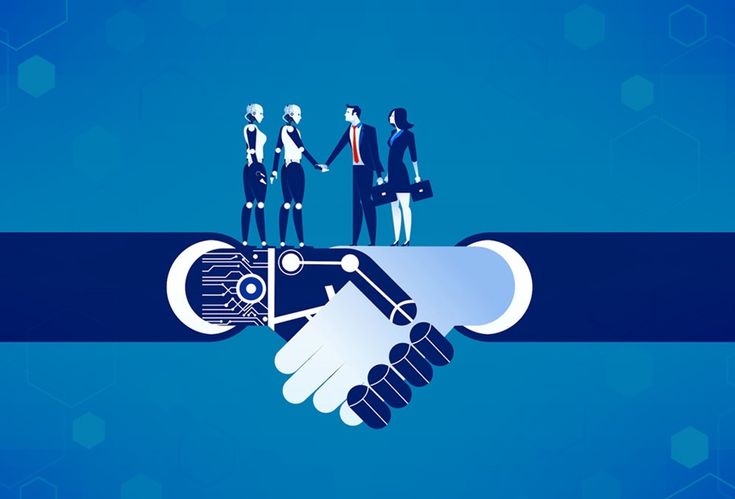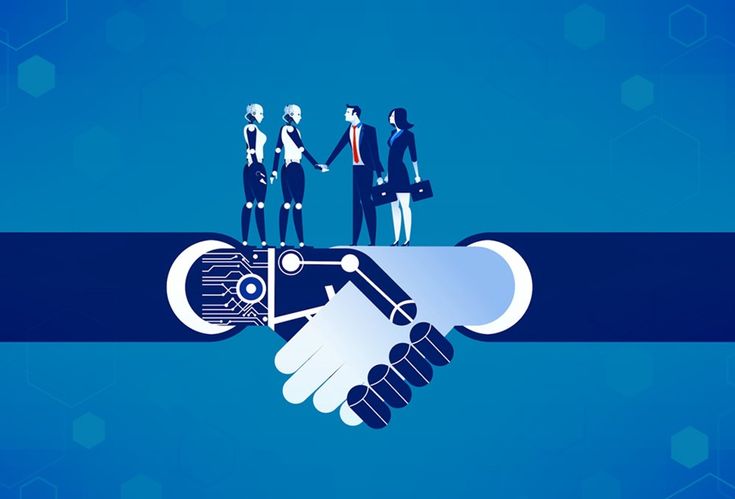AI In Software Development
By Inesh | Jan 25 2025

AI is now transforming many industries, including software development, which is no longer a sci-fi fantasy. Artificial intelligence is quickly changing software development and maintenance by enhancing decision-making and automating laborious procedures. Effectiveness, creativity, and dependability are being made possible by AI in everything from the writing of code to the testing and deployment of apps. What opportunities does AI present for the creation of software? Let's explore some important trends and opportunities in detail.
Imagine writing minimal instructions and letting AI handle the rest. Developers have traditionally spent long hours creating boilerplate code—the repetitive and foundational parts of a program that are necessary but uncreative. AI-powered tools like Git-Hub Copilot and OpenAI’s Codex are already transforming this aspect of coding. These tools use advanced algorithms to understand developer intent and generate code snippets, significantly reducing time spent on mundane tasks. The ability to comprehend high-level project requirements and convert them into reliable code could make these tools even more advanced in the future. Because of this, developers can now focus more of their time on addressing creative problems, such creating novel features or improving user experiences, instead of just coding.
AI is also revolutionizing debugging, another time-consuming aspect of software development. Although it can be a laborious process, identifying and resolving problems is essential to guaranteeing that software operates as intended. Future artificial intelligence algorithms may be able to anticipate potential code flaws, analyze them in real time, and even fix them on their own. These systems would rely on vast amounts of existing code data to identify patterns that often lead to bugs. AI can save developers numerous hours of debugging by anticipating possible problems and taking proactive measures to resolve them, allowing for quicker and more effective development cycles. Additionally, these systems might give programmers thorough explanations of the reasons behind a specific issue, which would promote a better comprehension of the underlying code.
Software testing is also being transformed by AI. A critical phase in the software development lifecycle, testing ensures that programs meet quality standards and function as intended. Conventional methods of testing can require a lot of physical work and are subject to human mistake. On the other hand, machine learning models can create test scenarios, identify edge cases, and simulate user activities that humans might miss. As AI develops, it may be able to offer thorough testing coverage in a fraction of the time and expense required by conventional techniques. In addition to guaranteeing better and more dependable software, this frees up development teams to concentrate on providing value to end users rather than becoming mired down in the complexities of testing.
Future AI tools may be able to adjust to the tastes and coding styles of individual developers, improving the efficiency and personalization of the development process. An AI might, for example, look at a developer's prior work to provide solutions that fit their coding style. For novices who might find it difficult to navigate complicated codebases, this degree of customization could be quite helpful. AI can assist in bridging the gap between inexperienced and seasoned developers by directing them through best practices and offering customized advice. Furthermore, this adaptability could extend to team dynamics, with AI facilitating collaboration by suggesting code that integrates seamlessly across different contributors.
AI is also developing quickly in the field of DevOps, or the combination of development and operations. DevOps places a strong emphasis on teamwork and automation to expedite the software development process, and artificial intelligence is elevating these ideas. Predictive analytics driven by artificial intelligence can minimize resource allocation, anticipate deployment issues, and ensure smooth rollouts. For example, an AI system could analyze past deployment data to predict potential bottlenecks or recommend optimal configurations for cloud resources. It's also anticipated that CI/CD pipelines will become increasingly sophisticated, with AI automating large amounts of the procedure. This helps businesses meet demand from markets faster by lowering the possibility of human error and speeding up delivery schedules.
The ability of non-programmers to design apps with little to no coding knowledge is one of the most intriguing results of AI. Low-code and no-code platforms' user-friendly interfaces, which let users construct programs by just dragging and dropping components, are already familiar to their users. But with AI's assistance, these platforms might grow much more potent.However, these platforms could become even more powerful with AI's help. Consider a situation in which the system automatically creates the code after a user uses natural language to describe the application they want. This democratization of software development may enable people and companies to realize their ideas without requiring a high level of technical know-how. Additionally, by making technology more widely available, it might encourage innovation.
AI affects more than just debugging and coding. Furthermore, it is altering our perspective on software development project management. Technologies powered by artificial intelligence can predict project timelines, allocate resources effectively, and even identify potential risks before they become significant. These capabilities can assist project managers in making informed decisions and keeping development processes on track. In order to provide methods for streamlining processes and raising team output, AI can also examine past project data. Project managers and team members can concentrate on their primary responsibilities by using AI to alleviate administrative chores, which promotes a more efficient and cooperative development environment.
AI's uses in software development go beyond conventional domains and provide the way for innovative breakthroughs. For instance, AI can improve cyber security by spotting flaws and offering immediate solutions. Making sure software is secure becomes more crucial as it gets more complicated. System defense against internet threats could be greatly aided by artificial intelligence (AI). Furthermore, virtual reality (VR) and augmented reality (AR) could advance with the aid of artificial intelligence (AI), giving developer’s previously unheard-of simplicity in producing immersive experiences. Solutions driven by artificial intelligence (AI) can enable these technological advancements reach their full potential in a number of industries, such as gaming, healthcare, and education.
It's also worthwhile to investigate how AI is used in software development education and training. As AI-powered learning platforms become more popular, prospective developers may now access customized learning programs that adjust to their own strengths and shortcomings. In order to prepare students for the demands of the industry, these platforms can simulate real-world coding challenges, offer immediate feedback, and recommend extra resources. AI can assist create the next generation of talented developers who are prepared to work with cutting-edge technology by broadening access to and customizing instruction.
AI has numerous benefits, but it also inevitably has disadvantages. It is crucial to guarantee equity and avoid biases in AI models since they usually use data that may reflect existing inequalities. Because AI-powered technologies may unintentionally generate vulnerabilities if not properly managed, developers must also address the security issue. Furthermore, there is a chance that an excessive dependence on AI tools will eventually result in a reduction in human proficiency. For software development to continue to be a competent and moral field, the proper balance between utilizing AI's potential and preserving human oversight must be struck.
The future isn’t about AI replacing developers but about AI complementing their abilities. AI and developers will work together to solve repetitive or very complex jobs, with humans providing creativity and critical thinking. Developers may push the envelope by working with AI to produce software that is not just more effective but also more creative and influential. For instance, AI could facilitate the creation of software solutions for complex global concerns, such as climate change, healthcare, and education. Developers can focus their creativity on solving these important problems by automating repetitive tasks.
AI has enormous promise for software development in the future. New paradigms in fields like edge computing, where processing takes place closer to data sources for quicker and more effective operations, are probably going to be introduced as AI technologies develop further. AI may also make it possible for hardware and software to be more integrated, resulting in improved performance and smooth communication. These innovations will be particularly relevant as industries adopt the Internet of Things (IoT) and other interconnected systems that require efficient and intelligent software solutions.
Furthermore, it is imperative that the ethical implications of AI in software development continue to be a top concern. It is the duty of developers and organizations to guarantee that AI-powered systems are open, responsible, and consistent with social norms. This entails resolving worries about employment loss and making sure AI promotes fair opportunity rather than escalating inequality. The software development community can maximize AI's promise while reducing its hazards by promoting an ethical innovation culture.
AI is set to redefine software development, making it faster, more efficient, and accessible. However, as we adopt these advancements, it’s critical to strike a balance between creativity and moral obligation. The best part about AI's promising future in software development? We're just getting started. The potential is limitless as we stand on the edge of this technological revolution. Do you feel prepared to embrace this exciting future? Join the discussion and share your opinions!
Finally, by fusing the creativity of human minds with the accuracy of computers, AI is a revolutionary force in software development. It promises to stimulate completely fresh perspectives on technology in addition to increasing the efficiency of development. The potential on the horizon is boundless, and the process of incorporating AI into software development is only getting started. The combination of human creativity with machine intelligence will create a future full of ground-breaking opportunities as people and organizations investigate these advancements.
For Admission @ JEC Contact us through given below details.
Email: admission@jeckukas.org.in
Phone: +91-8875071333
